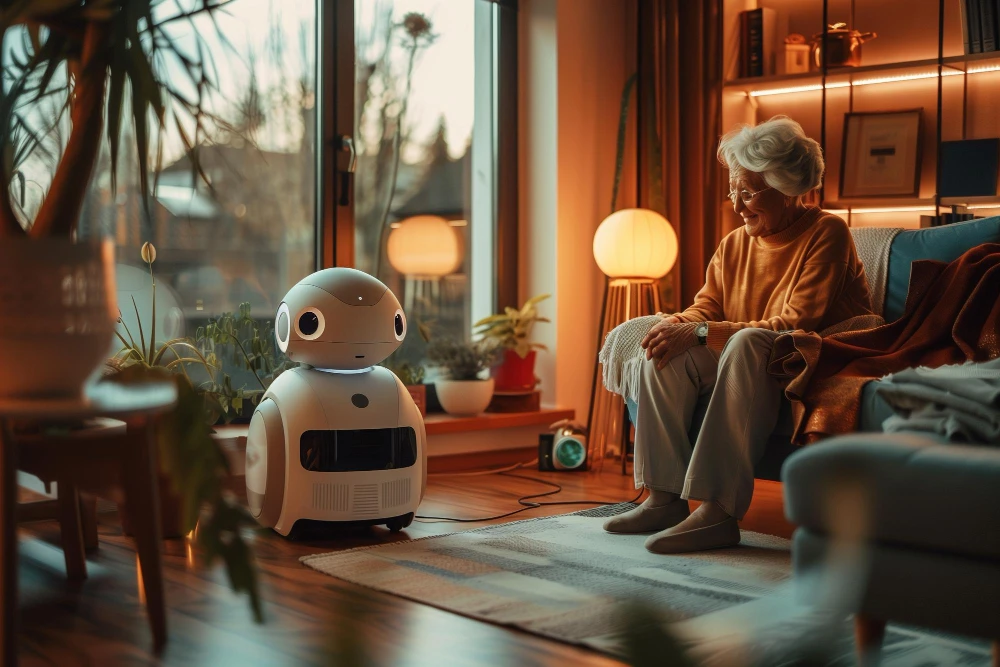
The Importance of AI in Our Daily Life
Artificial Intelligence (AI) has become an integral part of our daily lives, significantly transforming various aspects of how we live, work, and interact. From enhancing productivity to improving healthcare and revolutionizing entertainment, AI's influence is far-reaching and continues to grow. This article explores the importance of AI in our everyday experiences.
Enhancing Personal Assistants:
One of the most ubiquitous applications of AI is in personal assistants like Siri, Alexa, and Google Assistant. These AI-powered tools help manage schedules, set reminders, answer queries, and control smart home devices through voice commands. They leverage natural language processing (NLP) to understand and respond to user requests, making day-to-day tasks more efficient and manageable [1].
Revolutionizing Healthcare:
AI is making significant strides in healthcare by providing tools for early diagnosis and personalized treatment. Machine learning algorithms analyze medical data to detect patterns and predict disease outbreaks, enabling timely interventions [2-3]. For example, AI systems can interpret medical images with high accuracy, assisting radiologists in diagnosing conditions such as cancer. Additionally, AI-driven wearable devices monitor patients' vital signs in real-time, offering continuous health tracking and prompt alerts for any anomalies [2-3].
Transforming Transportation:
The transportation industry is experiencing a revolution due to AI advancements. Autonomous vehicles, powered by AI, promise to reduce traffic accidents and improve traffic management. These self-driving cars use sensors and machine learning algorithms to navigate and make decisions in real-time [4]. Moreover, AI optimizes public transportation systems, predicting maintenance needs and improving route efficiency [4].
Improving Entertainment and Media:
AI is reshaping the entertainment and media landscape by enhancing content creation and consumption. Streaming services like Netflix and Spotify use AI algorithms to analyze user preferences and recommend personalized content, thereby improving user experience [5-7]. In the realm of content creation, AI tools assist in generating music, writing scripts, and even creating visual art, showcasing the creative potential of AI [5-7].
Advancing Education:
Education has also benefited from AI through personalized learning experiences. AI-driven educational platforms assess individual learning styles and adapt instructional materials accordingly [8]. These systems provide personalized feedback and support, helping students learn more effectively. Additionally, AI tools assist educators by automating administrative tasks, allowing them to focus more on teaching and student engagement [8].
Enhancing Security:
AI plays a crucial role in enhancing security through advanced surveillance systems and cybersecurity measures. AI algorithms analyze video feeds to detect suspicious activities and potential threats in real-time, thereby preventing crimes [9]. In cybersecurity, AI helps identify and mitigate cyber threats by recognizing patterns indicative of malicious activities, ensuring data protection and privacy.
Conclusion:
The integration of AI into our daily lives brings about significant improvements in efficiency, convenience, and safety. As AI technology continues to advance, its applications will expand further, driving innovation across various sectors. Embracing AI and understanding its potential will be essential for leveraging its benefits and addressing the challenges it poses.
References:
- Marr, B. (2018). How AI Is Transforming Personal Assistants. Forbes.
- Esteva, A., et al. (2017). Dermatologist-level classification of skin cancer with deep neural networks. Nature.
- Topol, E. J. (2019). High-performance medicine: the convergence of human and artificial intelligence. Nature Medicine.
- Manyika, J., & Bughin, J. (2018). AI in the transportation industry. McKinsey & Company.
- Amatriain, X., & Basilico, J. (2012). Netflix Recommendations: Beyond the 5 stars. Netflix Tech Blog.
- Vincent, J. (2016). AI Can Now Create Original Music and Art. The Verge.
- Holmes, W. (2019). AI in Education: The Learning Revolution. EDUCAUSE Review.
- Brundage, M., & Bryson, J. (2016). The Malicious Use of Artificial Intelligence: Forecasting, Prevention, and Mitigation. arXiv.




